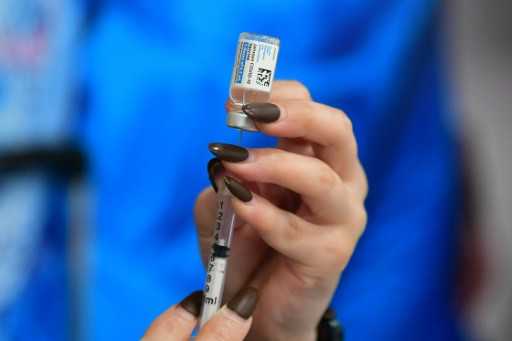Omicron forces U.S. firms to reassess return-to-office plans, vaccine mandates
20 December, 2021

Major U.S. companies are having to reassess their return-to-office plans and getting tough on vaccine or mask requirements as the Omicron COVID variant looks set to extend pandemic-induced work-from-home culture.
A resumption of pre-virus workplace norms was only partially moving forward in the United States when the fast-spreading new variant arrived and provoked fresh concern.
Legal challenges have made the future of President Joe Biden's vaccine mandate for companies with over 100 workers uncertain, and firms have been pursuing their own requirements.
Tech giant Google has been notably uncompromising in warning employees of lost pay or even dismissal if they do not report their vaccination status by a particular deadline, according to an internal document viewed by CNBC.
"We firmly believe that our vaccination requirements are one of the most important ways we can keep our workforce safe and keep our services running," Google told AFP.
The search engine giant has also postponed indefinitely the return to the office of its engineers and developers, originally scheduled for January.
For its part, Facebook parent Meta is offering its employees the opportunity to choose between home and office work.
Amazon, which had suggested a return of its face-to-face office workers at least three days a week in early 2022, is expected to make further announcements in January, the company told AFP.
Warehouse employees and drivers are not affected by these arrangements.
Apple has reinstated the mandatory wearing of masks in all its U.S. stores after making it optional in November at some 100 points of sale.
The iPhone maker also temporarily closed stores last week in Florida and Maryland as well as in the Canadian province of Ontario.
Wall Street has also been forced to adjust to the rising number of COVID cases in New York City and other financial centers.
JPMorgan is restricting access to nine of its buildings in Manhattan to vaccinated people, who are not required to wear masks once inside.
"We are taking this step because we have very high rates of vaccination amongst our employees," the bank said in an internal memo seen by AFP. "With rates well above 90 percent, it seems unfair to require our vaccinated employees to wear masks all day at their desks."
Unvaccinated employees must work from home.
Despite the desire for a return to normalcy, JPMorgan had to back out of a health conference in California the bank plans to host in January that was originally scheduled to be held face-to-face.
Under pressure from several attendees concerned about the risk of infection and "out of an abundance of caution," the bank moved the event to a virtual format.
Other big names in American finance, such as Citigroup and Morgan Stanley, are encouraging their employees to work from home as much as possible over the next few weeks.
In the retail sector, companies are also getting tough on COVID shots.
For example, the Kroger supermarket chain will suspend COVID special sick leave for unvaccinated employees, according to several U.S. media reports.
Unvaccinated workers will also have to pay a $50 premium starting in January to remain on the company's health insurance.
According to a study conducted in late November by insurance broker Willis Towers Watson, 57 percent of U.S. employers already require vaccination of their employees or were considering making it mandatory.
"Employers can encourage vaccinations and boosters with scheduling flexibility and time off, promote regular testing, stipulate mask wearing onsite to ensure employee health and safety," noted Jeff Levin-Scherz of Willis Towers Watson.
Return-to-office was showing some signs of momentum the very same week that Omicron was detected for the first time in the United States.
As of Dec 1, office occupancy in major American cities hit 40 percent, according to a weekly barometer conducted by security systems specialist Kastle using data from 10 urban areas across the country.
Thought that was a pandemic period high, it was dwarfed by the 95 percent rate in March 2020, before lockdowns took effect.
Source: japantoday.com
